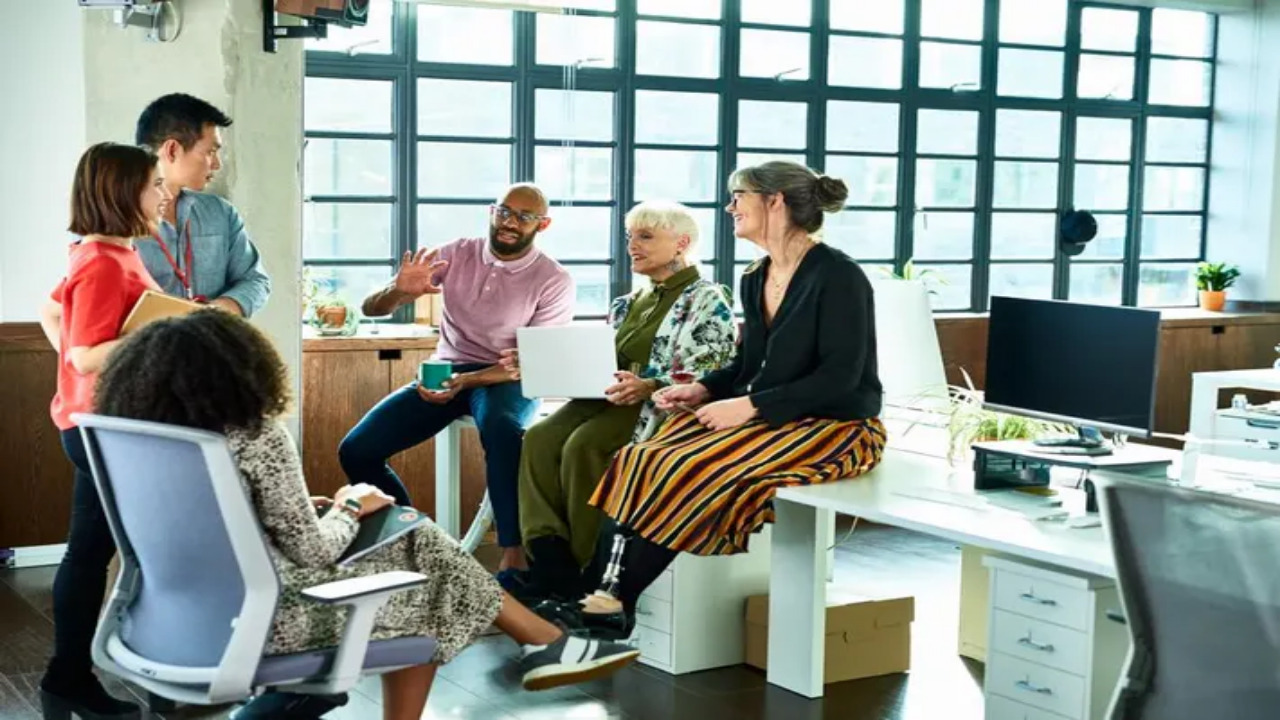In today’s fast-paced and dynamic business landscape, the concept of company culture has undergone a remarkable transformation. No longer confined to mere office decor and occasional team-building activities, company culture has emerged as a strategic imperative that directly impacts employee satisfaction, productivity, and overall business success. As the modern workforce evolves, so too must company cultures adapt to meet the changing needs of employees. This evolution can be understood through four key subheadings: From Traditional Hierarchies to Collaborative Environments, Work-Life Integration and Flexibility, Emphasis on Well-being and Inclusivity, and Purpose-Driven Organizations.
From Traditional Hierarchies to Collaborative Environments

In the past, company culture often revolved around rigid hierarchies, where decision-making and communication flowed from the top down. However, the advent of technology and the rise of younger generations entering the workforce have challenged this paradigm. Modern employees seek a sense of belonging and empowerment, valuing transparent processes and easily accessible detailed pay stubs. As a result, companies are shifting towards flatter organizational structures that foster open communication, idea-sharing, and cross-functional collaboration. This shift encourages employees to contribute their unique perspectives and talents, ultimately leading to greater innovation and agility within the organization.
Work-Life Integration and Flexibility
The traditional 9-to-5 work model is gradually giving way to a more flexible approach that recognizes the importance of work-life integration. Modern employees value autonomy over their schedules and the ability to balance their professional commitments with personal responsibilities. Remote work and flexible hours have become integral components of many company cultures, enabling employees to tailor their work environments to suit their individual needs. This evolution not only boosts employee morale but also enhances productivity and reduces burnout, as employees are empowered to create a work routine that aligns with their energy levels and personal lives.
Emphasis on Well-being and Inclusivity

As awareness of mental and emotional well-being increases, company cultures are placing a greater emphasis on creating environments that support employee health and inclusivity. Beyond traditional benefits, such as health insurance, companies are offering wellness programs, mental health resources, and avenues for personal development. Additionally, inclusivity has taken center stage, with diversity and equity becoming foundational pillars of company cultures. Businesses are actively working to create environments where employees of all backgrounds feel valued and heard, recognizing that diverse perspectives drive innovation and foster a more inclusive workplace.
Purpose-Driven Organizations
Modern employees are increasingly seeking a sense of purpose beyond just a paycheck. They want to work for companies that align with their values and contribute positively to society. Consequently, purpose-driven organizations are emerging, placing a strong emphasis on their societal impact and ethical practices. These companies prioritize sustainability, social responsibility, and ethical decision-making. By aligning their missions with broader societal goals, purpose-driven organizations attract and retain employees who are not only motivated by financial rewards but also by the meaningful impact their work creates.
In conclusion, the evolution of company culture reflects the changing landscape of the modern workforce. Companies are moving away from rigid hierarchies towards collaborative structures, promoting work-life integration and flexibility, prioritizing employee well-being and inclusivity, and embracing purpose-driven missions. This evolution is driven by the recognition that a positive and adaptive company culture not only attracts top talent but also nurtures employee engagement, creativity, and long-term loyalty. As the needs and expectations of employees continue to evolve, so too will company cultures, ensuring that businesses remain competitive and resilient in an ever-changing business environment.
